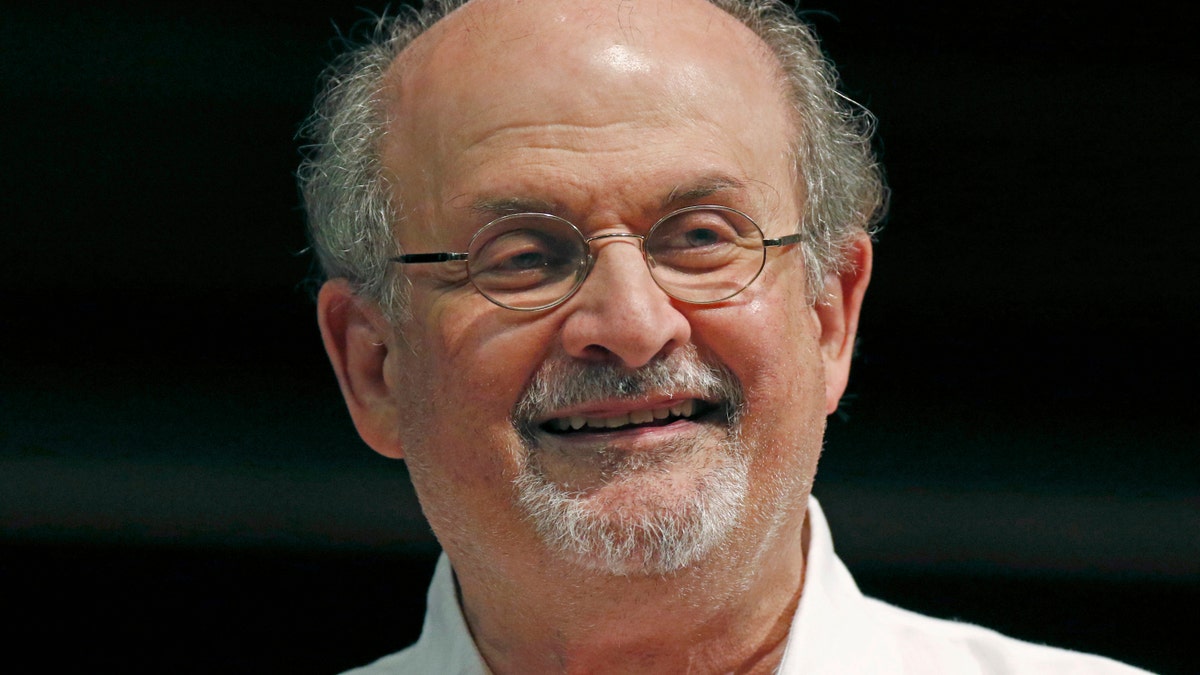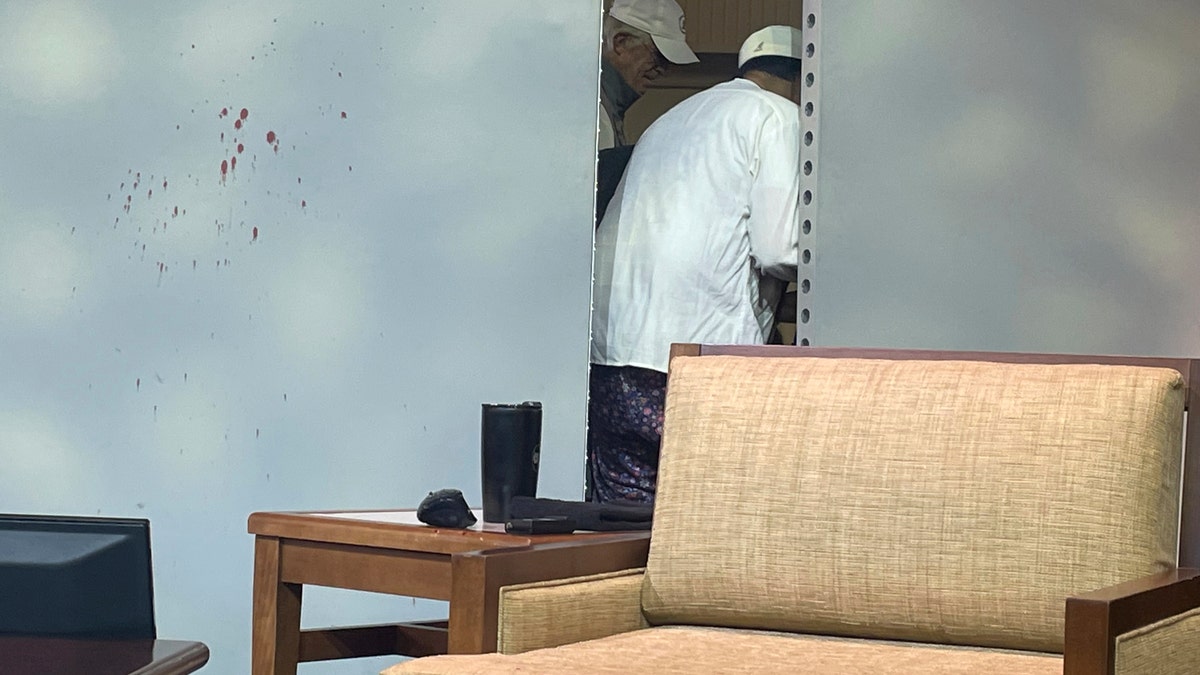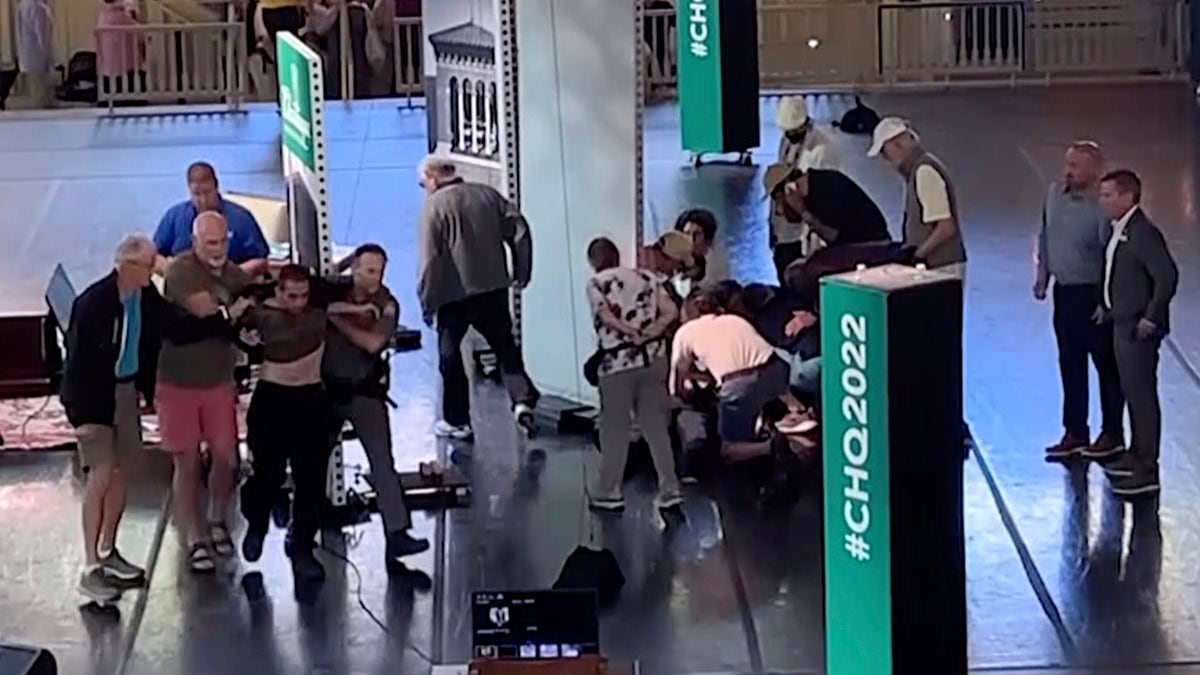Iran denies responsibility for Salman Rushdie stabbing
The 'Outnumbered' panel discussed the latest developments in the stabbing of author Salman Rushdie.
The man who was about to interview novelist Salman Rushdie when he was attacked and stabbed on stage in New York by a crazed knife wielder is revealing the injuries he sustained while trying to defend the author.
Henry Reese, 73, spoke to the BBC late Tuesday, the New York Post reports. He was barely able to open his blackened right eye.
Rushdie, whose novel "The Satanic Verses" drew death threats from Iran’s leader in the 1980s, was stabbed in the neck and abdomen Friday by a man who rushed the stage as the author was about to give a lecture at the Chautauqua Institution, about 55 miles south of Buffalo.
"As well as deep bruising ringing the eye, he had several stitches above it from a knife wound suffered while holding down the legs of the man who stormed onstage and repeatedly stabbed Rushdie," the New York Post reported of Reese. The attacker was identified as Hadi Matar, 24, of Fairview, New Jersey. He was arrested at the scene and was awaiting arraignment. Matar was born a decade after "The Satanic Verses" was published. The motive for the attack was unclear, State Police Maj. Eugene Staniszewski said.

Author Salman Rushdie appears during the Mississippi Book Festival in Jackson, Mississippi, on Aug. 18, 2018. (AP Photo/Rogelio V. Solis, File)
"I’m doing well, everything is proceeding — I’m doing quite well," he told the BBC from his home in Pittsburgh. "Our concern is for Salman. And I mean that both certainly for himself, but also for what he means in the world. And he’s important to the world."

Blood stains mark a screen as author Salman Rushdie, behind screen, is tended to after he was attacked during a lecture at the Chautauqua Institution in Chautauqua, New York, on Friday, Aug. 12, 2022. (AP Photo/Joshua Goodman)
A bloodied Rushdie, 75, was flown to a hospital and underwent surgery. His agent, Andrew Wylie, said the writer was on a ventilator Friday evening, with a damaged liver, severed nerves in his arm and an eye he was likely to lose. He has since been taken off a respirator and is expected to survive.
"Our mission is to protect writers who are in sanctuary. And to see Salman Rushdie assaulted for his life is unimaginably… it’s hard to describe what it is to see that happen in front of you," Reese told the BBC.

This still image from video shows Hadi Matar, 24, of Fairview, N.J., at left, being escorted from the stage as people tend to author Salman Rushdie, center right, at the Chautauqua Institution, in Chautauqua, N.Y., on Friday, Aug. 12, 2022. (AP Photo)
The moderator hopes to one day be able to finally hold the planned talk, he told the BBC.
"That would be my ideal, to see that happen and not to be in any way impeded from doing what we set out to do. To both show that these values will be defended and that they can be defended," Reese said.
Rushdie’s 1988 novel was viewed as blasphemous by many Muslims, who saw one of its character as an insult to the Prophet Muhammad, among other objections. Across the Muslim world, often-violent protests erupted against Rushdie, who was born in India to a Muslim family.
CLICK HERE TO GET THE FOX NEWS APP
An Iranian government official claimed Monday that Tehran was not involved in the recent attack on Rushdie.
Fox News' Landon Mion and The Associated Press contributed to this report.











































